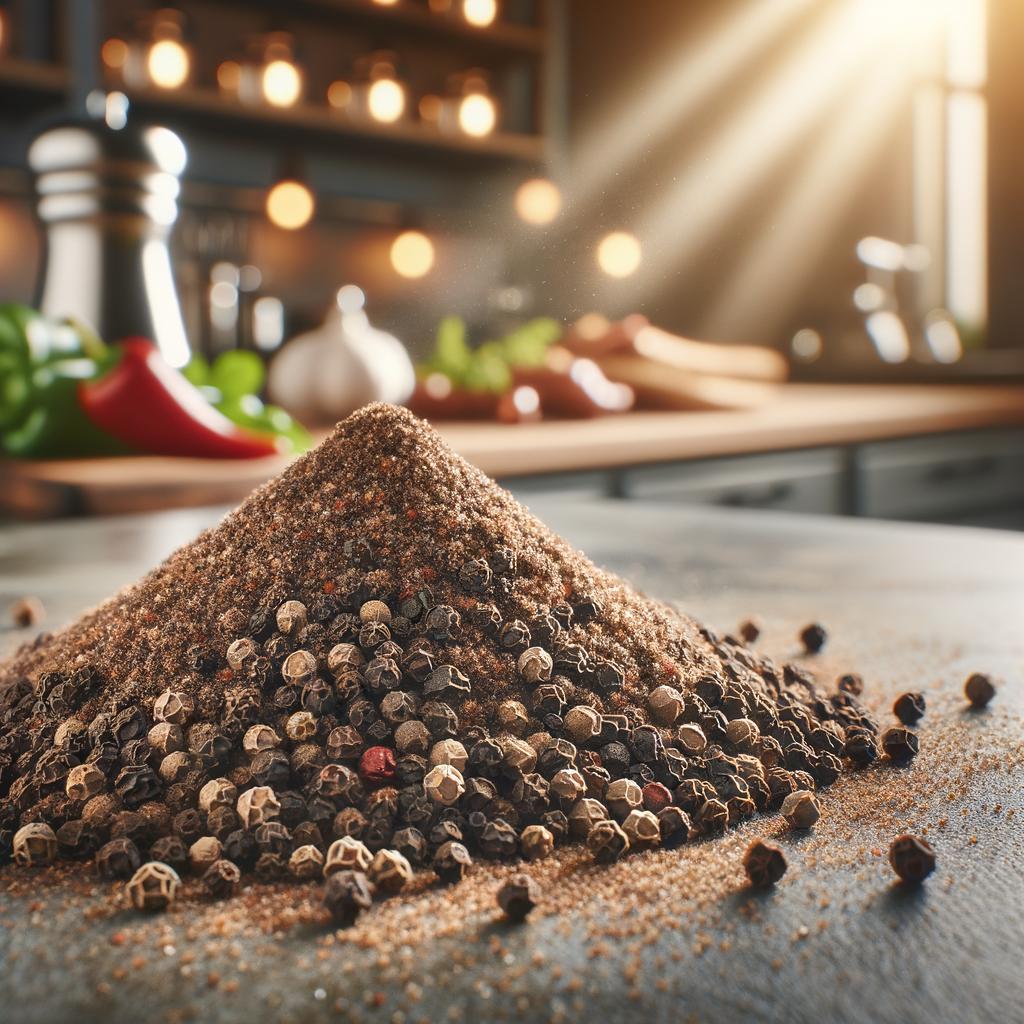Ground Pepper

Description
Ground pepper, a humble yet powerful ingredient, is the finely pulverized version of dried, mature peppercorns. It boasts a rich, dark color ranging from black to deep brown, and its texture is as fine as sand, yet gritty enough to add a delightful crunch to dishes. Ground pepper's flavor profile is a symphony of sensations - it starts with a warm, woody aroma, followed by a spicy, pungent taste that can bring tears to your eyes, and ends with a lingering heat that dances on the tongue. What sets ground pepper apart from its similar counterparts is its versatility and ability to enhance the flavor of virtually any dish it graces with its presence.
Primary Uses
Ground pepper is a culinary chameleon, adapting to and enhancing a wide array of dishes across various cuisines. It is commonly used as a seasoning, adding a kick of heat and depth of flavor to everything from hearty stews and soups to delicate sauces and even desserts. It's also a key component in spice blends such as garam masala and five-spice powder. Beyond its culinary uses, ground pepper has been used for medicinal purposes, particularly in Ayurvedic medicine, where it's believed to aid digestion and promote respiratory health.
History
Pepper, the 'King of Spices', has a history as rich and vibrant as its flavor. Originating from the Malabar Coast of India, it was considered so valuable in ancient times that it was used as a form of currency. It was a symbol of luxury and power, often used in sacred rituals and as a status symbol among the elite. Pepper's popularity grew with the spice trade, and it was one of the spices that inspired explorers to embark on dangerous voyages in search of new routes. Over time, the use of ground pepper has evolved from a luxury item to a staple in kitchens worldwide. There's an intriguing myth in Greek mythology where Atalanta, a famous huntress, was tricked into marriage by a suitor who used golden apples - and some say, magical peppercorns - to win her heart.
Nutritional Information
Despite its small size, ground pepper is a nutritional powerhouse. It is rich in vitamins, particularly Vitamin K, and minerals such as manganese, iron, and dietary fiber. It's also packed with antioxidants, which help protect your cells from harmful free radicals. Piperine, the compound that gives pepper its pungency, has been shown to boost metabolism, improve nutrient absorption, and may have anti-inflammatory properties. Compared to other spices like paprika or cumin, pepper has a higher piperine content, making it a superior choice for those seeking to maximize these health benefits. However, consumption should be moderate as too much can lead to gastrointestinal discomfort.

